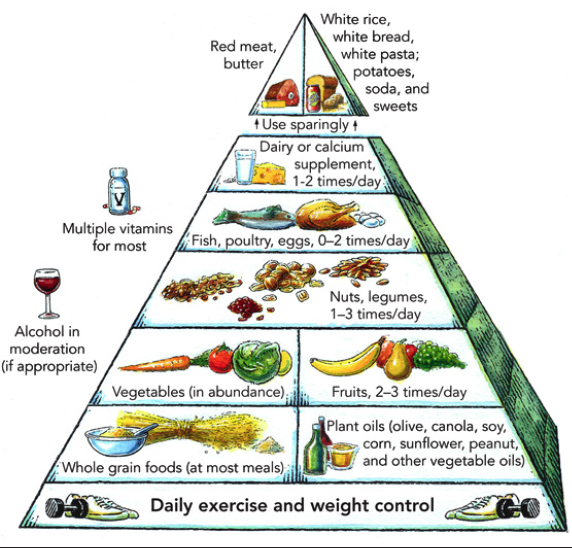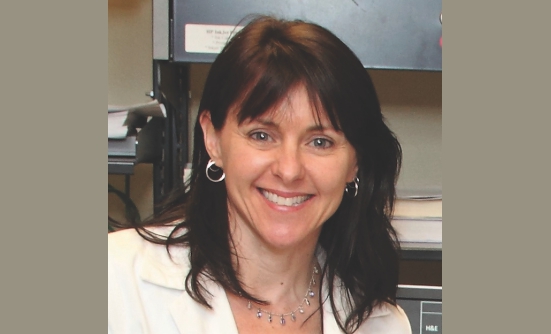
A healthy diet may help to prevent cancer, inhibit cancer growth, and lower the risk of cancer recurrence, according to Natalie Ledesma, MS, RD, CSO, Clinical Nutrition Specialist at the University of California San Francisco Helen Diller Family Comprehensive Cancer Center.
During the 2019 AONN+ Midyear Conference in San Diego, Ms. Ledesma shared her insights on what would constitute a healthy diet for patients with cancer and separated some common nutrition myths from facts.
“One of the myths patients sometimes face is that they’re told by practitioners to eat whatever they want, because it’s not going to matter,” she said. “I’m not saying we’re going to use diet to cure cancer. But to think that what’s fueling the body is going to have zero impact on cancer and on the risk for a variety of chronic diseases, as well as on a patient’s immune function, energy, and ability to get through treatment, is absolutely ludicrous.”
Essentials of a Healthy Diet
If she had to sum it up simply, Ms. Ledesma said, the ideal basics of a healthy diet for patients with cancer would include:
- At least 80% of their nutrients from healthful plant-based sources
- 8 to 10 colorful fruit and vegetable servings daily
- 30 to 45 grams of fiber daily
- Limited amounts of processed and refined grains, flours, and sugars
- Limited amounts of dairy products and fatty or processed meats.
Following such a diet helps patients to achieve 2 goals. It will help increase their consumption of vitamins, minerals, dietary fiber, and phytochemicals that can provide protective benefits against cancer and other chronic diseases. It may also decrease their consumption of animal fats and protein, processed foods, and sugars as a result of feeling satiated from a plant-based diet. One study found that women who consumed 5 or more servings of vegetables and fruits daily, in conjunction with 30 minutes of walking 6 days a week, had a significantly lower risk of death after early-stage breast cancer was diagnosed.
Ms. Ledesma noted that even modest changes in diet and lifestyle can have a significant effect on patient outcomes. Patients should consume lean protein, including plant protein, with every meal. Patients should also opt for healthy fats from foods such as cold-water fish like salmon, trout, herring, and sardines; seeds, including sunflower, sesame, and pumpkin seeds; walnuts and almonds; and olive oil and avocados.
Herbs and spices, such as turmeric, cayenne, rosemary, and basil, are healthy sources of antioxidants, and patients should consume them daily. In addition, 1 to 2 tablespoons daily of flax and chia seeds can help with digestion, and 1 to 4 cups daily of green tea should serve as a good source of polyphenols, beneficial compounds with antioxidant properties found in many plant-based foods.
All patients, but particularly those with gastrointestinal or breast cancer, should limit alcohol consumption and should engage in daily physical activity—even just a short walk—to help achieve and/or maintain a healthy body weight.
Is Sugar the Enemy?
Ms. Ledesma addressed the myth that consuming sugar causes cancer. Although there is no scientific evidence that sugar leads to cancer, the truth of the matter is that an excessive amount of sugar is not part of a healthy food plan. A diet high in sugar may lead to obesity, insulin resistance, and inflammation, which are risk factors for diabetes and certain types of cancer.
As explained by Ms. Ledesma, if a food is high in added sugar, it is usually devoid of nutrient value. Additionally, the way that sugar—particularly high-fructose corn syrup—is processed by the body appears to lead to higher fat mass and metabolic disease.
Sugar also leads to a relentless biochemical drive to consume more sugar. Simply put, if you eat a lot of sugar, you’ll only want more. This increased consumption can lead to higher insulin levels, higher concentrations of insulin-like growth factors, and higher abdominal fat, which also may be associated with an increased risk for various cancers. A higher level of insulin, a condition known as hyperinsulinemia, is also associated with increased risk of heart disease, a compromised immune system, obesity, and type 2 diabetes. It is estimated that about one-third of Americans will have diabetes by the year 2050.
The problem is that approximately 80% of food items in US grocery stores are spiked with added sugar. And, as Ms. Ledesma pointed out, it is human nature to want what we shouldn’t have. Instead of telling patients not to consume sugar, she focuses on making sure they’re getting enough healthy foods in their diet: vegetables, fruits, beans/legumes, nuts/seeds, whole grains, and lean protein sources.
“My general focus with sugar is, do we have evidence that it causes cancer? No. Do I want to encourage patients to eat as much sugar as they want? No,” she said. “Rather than focusing on what they can’t have, instead focus on loading up their bodies with nourishing foods. Oftentimes, if they’re satiated, they don’t crave that added sugar.”
Another myth is that artificial sweeteners are a healthier alternative to sugar. Data have been inconclusive regarding the relationship between artificial sweeteners and cancer, but those who consume artificial sweeteners generally gain more weight than those consuming caloric sweeteners, potentially leading to a host of other challenges. And just like sugar, sweeteners perpetuate the desire for more sweets and may lessen satiety response.
Not a Myth: Inflammation and Cancer Risk
The association between inflammation and cancer, however, is not a myth. Inflammation is linked to cancer as well as to virtually every other chronic disease. According to Ms. Ledesma, 2 key inflammatory biomarkers—C-reactive protein and fibrinogen—should be measured regularly in patients, as both have demonstrated a negative association with survival in clinical trials. But a balanced diet, especially one high in omega-3 fatty acids, can combat inflammation.
Most American diets contain an excessive amount of omega-6 fatty acids—from dairy products, grain-fed meats, and corn oil—but a diet rich in omega-3 acids can restore the balance between the 2 fatty acids and inhibit inflammation, thereby possibly reversing disease processes caused by inflammation.
But another myth is that all patients should follow a low-fat diet. There is no one-size-fits-all diet for patients with cancer, and nutrition should be personalized to each patient. A low-fat diet might be beneficial for some patients, but in others it may lead to increased carbohydrate consumption, higher blood sugar levels, and weight gain. Nutrigenomics is a relatively new philosophy that focuses on a person’s genetics and uses biomarkers and other clinical data to personalize a diet. “Nutrigenomics is here, and it’s real,” Ms. Ledesma said.
Perhaps most importantly, taking control of their own nutrition is empowering to patients and may offer a sense of control during an incredibly difficult time. According to Ms. Ledesma, when patients begin to eat a healthier diet, it may possibly improve their clinical outcomes, but it will almost certainly improve their quality of life.

Many of the food choices suggested by Ms. Ledesma can also be found in variations of the Mediterranean diet, and this could be a significant topic of discussion between navigators and patients. Reports about the Mediterranean diet were first published in the United States following research begun in the 1950s. Ancel Keys, PhD, from the University of Minnesota, and his team of researchers studied the connections between diet and heart disease among men from various countries, including Italy and Greece. Research indicated that men from Crete had lower rates of heart disease, which was attributed to a diet that was high in vegetables, fruits, grains, beans, and fish. Keys publicized the diet beginning in the 1970s, and in 1993 the nonprofit group Oldways partnered with the Harvard School of Public Health and the World Health Organization to create the Mediterranean diet pyramid. Interest in the Mediterranean diet, which is not a structured diet but may be considered more a lifestyle, continued to grow. An alternative to the food pyramid proposed by the US Department of Agriculture, the Mediterranean pyramid emphasizes the basic foods of that region as well as physical activity and social interaction. (See the Mediterranean diet pyramid illustration that patients and navigators can use to begin a discussion about a healthy food plan.) Although criticism of it has been published, the general benefits of the Mediterranean diet are supported by extensive research. There is a great deal of information about the diet on the Internet. (See, for example, www.verywellfit.com/mediterranean-diet-overview-2506730#pros-and-cons and, from Memorial Sloan Kettering Cancer Center, www.mskcc.org/blog/can-mediterranean-diet-help-cancer-survivors.)









